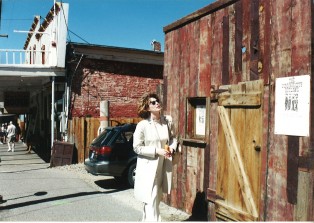Old West Advertisement
Over the past dozen or so years I’ve been researching Old West events I’ve come across some interesting advertisements. Newspapers from the mid 1800s are filled with peculiar, poignant and sometimes comical ads that provide insight into the lifestyle of the rugged pioneers who settled in the wild frontier. In the beginning traders, politicians and merchants peddled their wares using town criers, outdoor displays and eye-catching signs painted on the walls of buildings. The invention of moveable type in the early part of the 19th century gave business owners a new way to market their products and persuade consumers to buy whatever they were selling. However, advertisers did not abandon the old ways of pitching goods and services. By 1870, five years after the end of the Civil War, America was awash in advertising. Announcements were everywhere. Not only were they prominent in newspapers and magazines, but posters and broadsides, many in full color, blazoned from the walls of buildings in city locations from where they could be seen at considerable distances. Almanacs, filled with advertisements, were piled on druggists’ counters for customers to pick up. Notices were painted on rocks or sides of country barns, inside retail shops and offices, and on the outsides of public transportation. On the streets of large cities sandwich men were seen, at times in groups with each carrying individual letters which spelled out the name of a product. Banners were strung across streets and drummers were hired to beat out a tune and direct people into various general stores. The advertisements I’ve included in this month’s journal entries were featured in Almanacs and painted on the sides of country barns. The following advertisement, written by George Donner, leader of the ill-fated Donner Party, appeared in the Springfield Illinois Gazette in 1846. Ninety-seven people joined the party and left for points west in April of that year. Twenty-one pioneers survived the journey which included a long trek through a hot, barren desert, pounding rainstorms, attacks by hostile Indians, lack of water, blinding blizzards, and no food. The tragic outcome of the Donner Party did not halt westward migration. The promise of a better life in a land rumored to be rich with fertile ground and warm temperatures spurred hundreds on to California. The discovery of gold in 1849 brought thousands more to the state. The compelling ad read as follows: “Westward ho! Who wants to go to California without costing them anything? As many as eight young men of good character who can drive an ox team will be accommodated. Come boys, you can have as much land as you want without costing you anything!”


